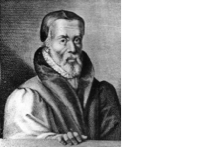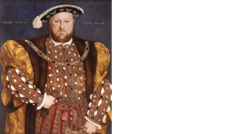Sign up for FlowVella
Sign up with FacebookAlready have an account? Sign in now
By registering you are agreeing to our
Terms of Service
Loading Flow

William Tyndale
Tyyndale was an English professor, and in many ways shared the characteristics of Martin Luther. Like Luther, he believed the Bible should be interpreted in other languages for everyone to understand. To do this, Tyndale translated the Bible into English, in turn upsetting the English clergy and tried to arrest him. Quickly, he fled the country and continued his translating and sent the copies back to England. Ultimately, he angered Catholic authorities and was in turn executed.
John Calvin
Calvin taught one specific idea known as predestination in which God knew who would be saved even before birth.
In addition to this, he stated the sins and acts in life would not affect the outcome of going into heaven or not. In turn, in
1541 the people of Geneva, Switzerland made him religious and political leader and made his teachings law. These people known as Calvinists banned forms of entertainment for the sake of it being sinful. In the end, Calvin thought he could make Geneva a good example for the rest of the world.
King Henry VIII
Henry first started his Protestantism when he requested an annulment from his wife for she could not bare a son from the Pope. Once the Pope refused, Henry decided to create a new church called the Church of England in 1534 to annul his wife. However, the main difference between he, Calvin, and Luther was he became a Protestant for personal reasons and didn't
Change many church practices, but overall allowed otherProtestant beliefs to appear in Engalnd.
Other Reformers

